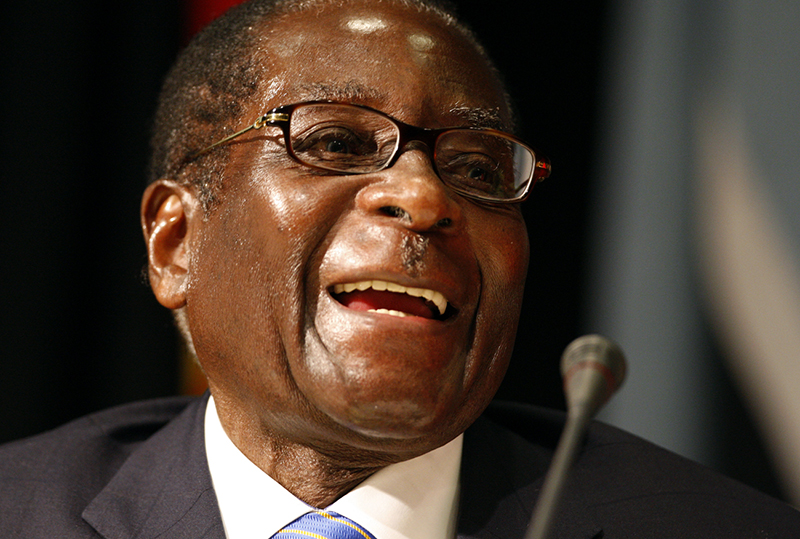Despondent and waiting in a long queue for daily food handouts from a well-wisher, Milka Mandimutsa gets nostalgic about Zimbabwe’s autocratic and longtime ex-leader Robert Mugabe, who died a year ago.
Had Mugabe been still ruling Zimbabwe, “I don´t think it (life) would be like this,” said the woman, in her late 20s, waiting to receive a portion of cooked beans and white maize meal in the working-class town of Chitungwiza, 30 kilometres (20 mile) south-east of Harare.
“He was far much better,” said the unemployed Mandimutsa, who was born after Mugabe was already a decade in power.
Another woman in the queue echoed her sentiments.
“Ever since the new president took power, I have not seen anything positive,” said Diana Nhemachena, also in her 20s, bemoaning the high cost of living in the country where official inflation is more than 800 percent.
Mugabe died on September 6 last year, aged 95 in a Singapore hospital, two years after he was forced to resign in 2017, and after 37 years in power.
Zimbabweans thronged the streets celebrating his ouster.
His successor Emmerson Mnangagwa came in with promises to fight corruption, revive the moribund economy and reduce poverty.
– ‘Ngwena’, means crocodile –
But many Zimbabweans say they are worse off than they were under Mugabe despite his creating an authoritarian regime which savagely repressed opponents.
He is also remembered for implementing controversial land reforms 20 years ago that resulted in economic collapse.
But far from being the expected messiah, Mugabe’s former deputy Mnangagwa has also become known for brutally crushing his opponents.
A month ago, he threatened to “flush” out bad “apples”, two weeks after an opposition politician and a journalist were arrested on charges of incitement to commit public violence.






